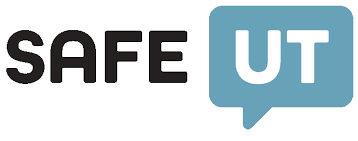Available Computer Science Courses
Computer Science Pathways & Landscape Analysis
Secondary (8-12)
- Cyber Security Pathway
- Information Technology Pathway
- Software & Development Pathway
- Web Development Pathway
Cyber Security Pathway
The Cybersecurity Pathway prepares students with academic, technical and employability skills for a career in cybersecurity through coursework, work-based learning opportunities, CTSO organizations, and opportunities to earn college credit and industry certifications in high school. Students will be prepared for diverse post high school education opportunities.
View USBE PDF Document
Information Technology Pathway
Information technology careers are available in every sector of the economy. The information technology industry is a dynamic and entrepreneurial field that continues to have a revolutionary impact on the economy and on the world. Students in the Information Technology Pathway learn and practice skills that give them college credit, industry certifications, and prepares them for diverse post-high school education.
View USBE PDF Document
Software & Development Pathway
The Programming and Software Development Pathway prepares students with essential skills such as critical thinking, computational thinking, problem solving, and mathematical reasoning.
View USBE PDF Document
Web Development Pathway
The Web Development Pathway includes work that involves creating, designing, and producing of interactive multimedia products and services. Students in this Pathway learn and practice skills that give them college credit, industry certifications, and prepares them for industry work
View USBE PDF Document
Intermediate (6-7)
Creative Coding
Creative Coding through Games is a first-semester course for introduction to programming for the early secondary grades. The course is designed to attract and reach a broad and diverse range of students, including those who may have never considered programming. Students learn how to code by working in a real software development environment to design and program games. Learning to code by creating real products, students discover how to make amazing things and have an impact on their world.
https://schools.utah.gov/cte/_cte/strands/CreativeCoding.pdf
College & Career Awareness
A course designed to increase awareness of College and Career Pathways through hands-on projects and work-based learning experiences such as career fairs, field studies, guest speakers, and/or job shadows. Based on interests, skills, and aptitudes, students will explore high school, postsecondary, and career opportunities to develop an individual Plan for College and Career Readiness (PCCR). Students will investigate high-skilled, in-demand and/or emerging jobs in the Utah labor market while developing essential workplace skills for future academic and career goals.
https://schools.utah.gov/cte/_cte/strands/CollegeCareerAwarenessStrands.pdf
Digital Literacy
This course allows students to develop basic computing fundamentals, improve digital communications, identify the importance of protecting individual data, apply key applications, and maintain positive digital wellness. Students will have opportunities to use digital devices to apply skills to accomplish tasks more efficiently using creativity, critical thinking, productivity, and collaboration in the classroom and day-to-day life. Students will use this foundational knowledge as a connection to future educational pathways.
https://schools.utah.gov/cte/_cte/strands/DigitalLiteracy.pdf
Intro to Python 1
Python is a language with a simple syntax, and a powerful set of libraries. It is an interpreted language, with a rich programming environment, including a robust debugger and profiler. While it is easy for beginners to learn, it is widely used in many scientific areas for data exploration. This course is an introduction to the Python programming language for students without prior programming experience.
https://schools.utah.gov/cte/_cte/strands/Python1Introduction.pdf
Elementary (K-5)
CodeHS
CodeHS is a comprehensive teaching platform designed to help schools teach computer science through web-based curriculum, teacher tools, and support.
Scratch
First Lego League
FIRST LEGO League is a global robotics competition built around theme-based Challenges to engage children in research, problem solving, coding, and engineering.
Code.org
Code.org is a nonprofit organization that provides curriculum for k-12 computer science across the United States. Over 1,000,000 teachers have signed up to teach Code.org intro courses and over 48,000,000 students have enrolled. Code.org has also been a very powerful supporter of creating computer science opportunities for all.

